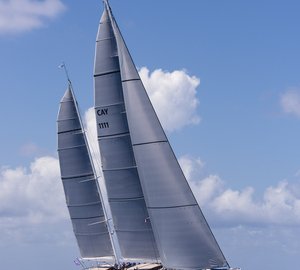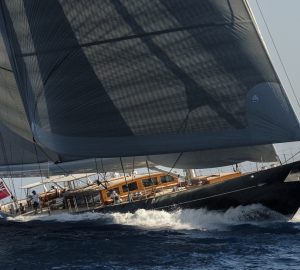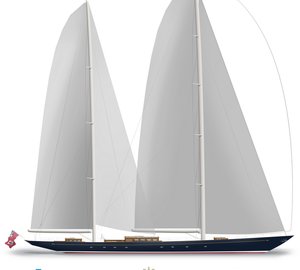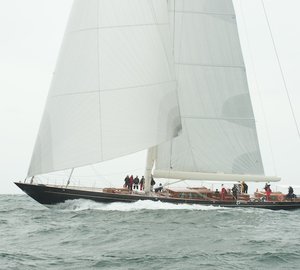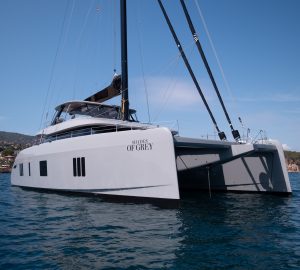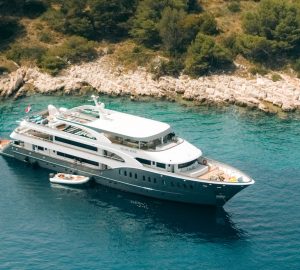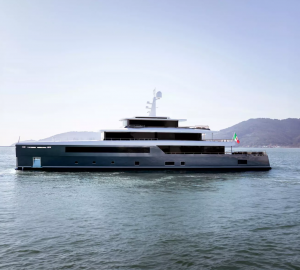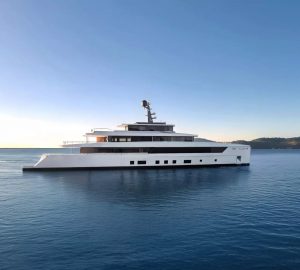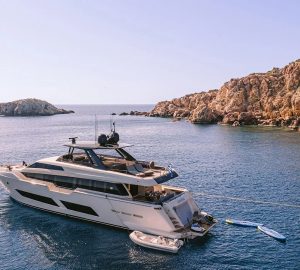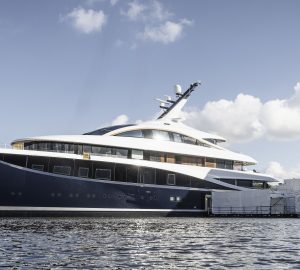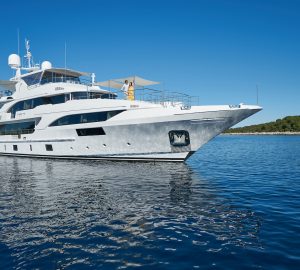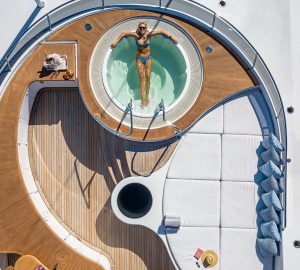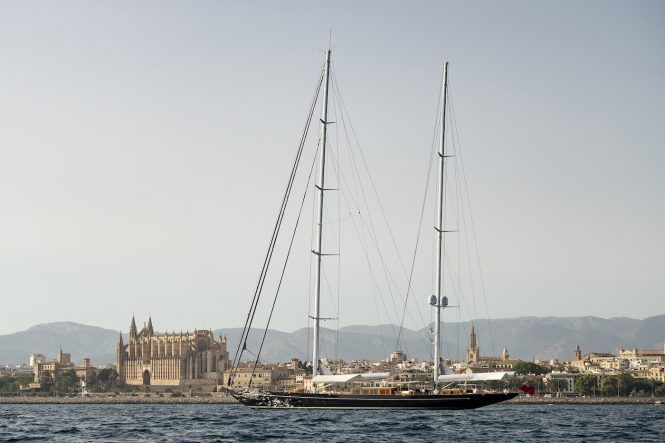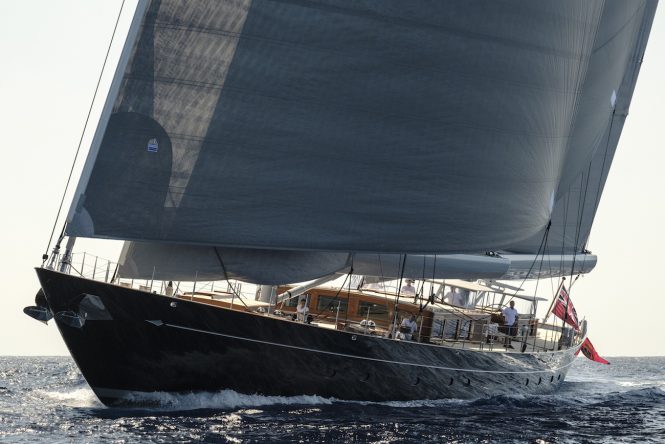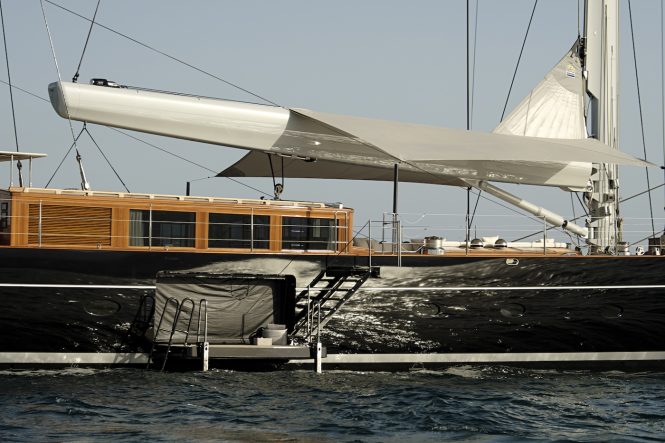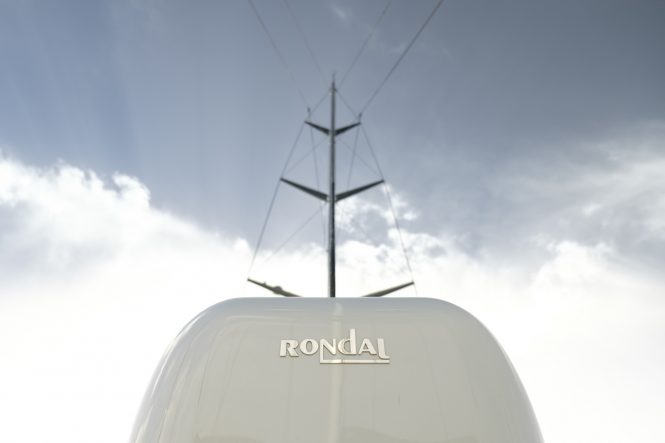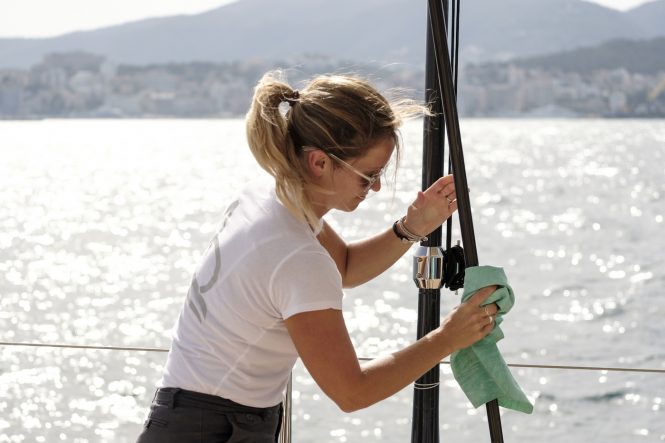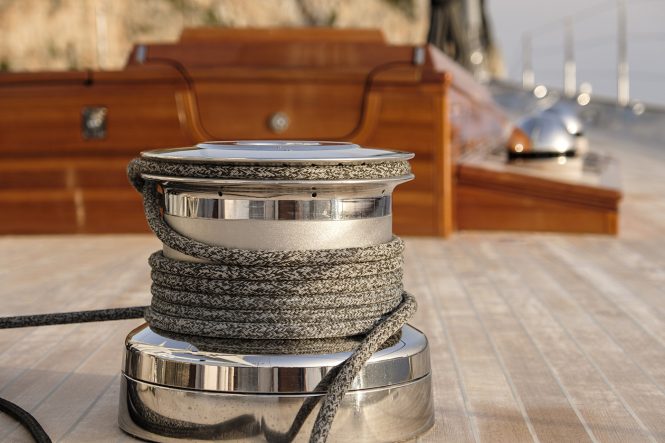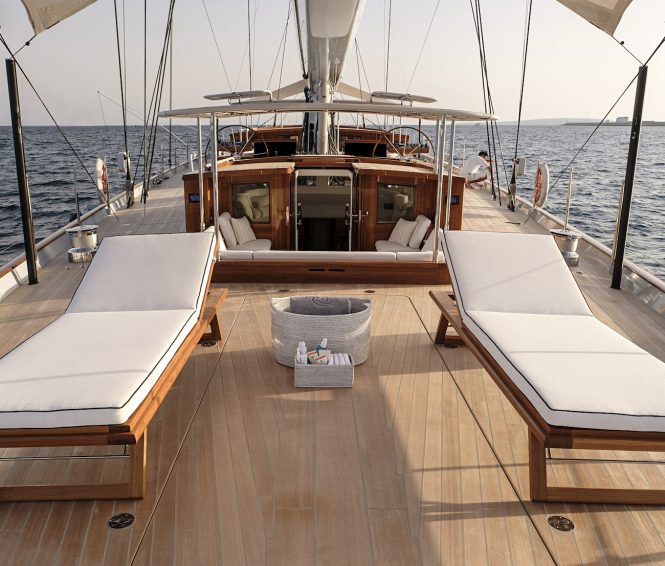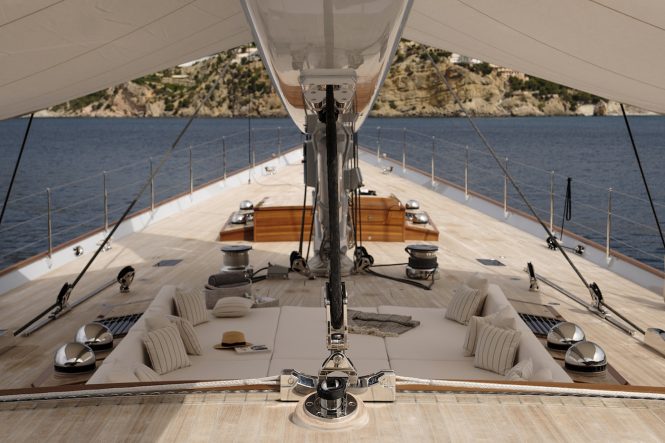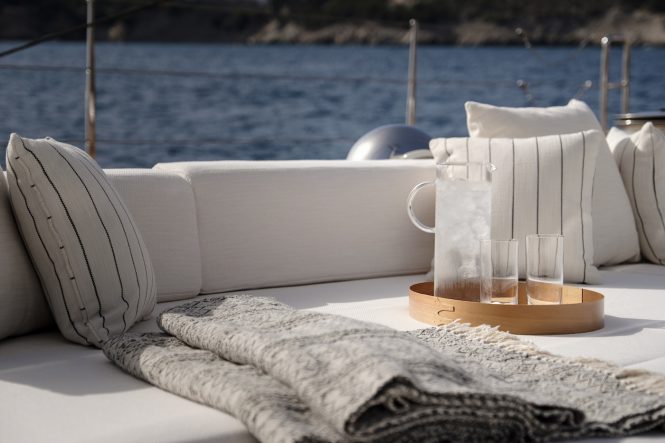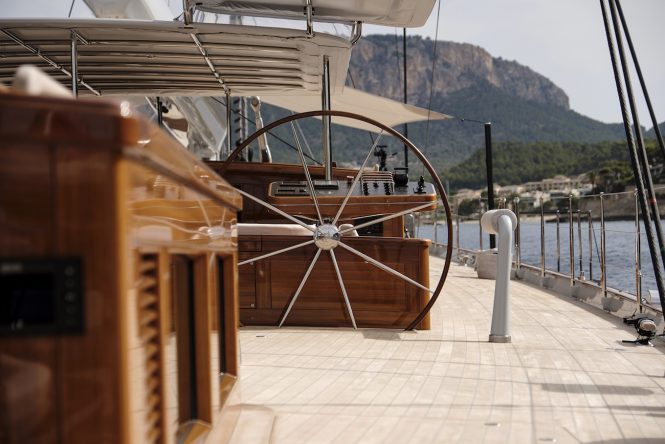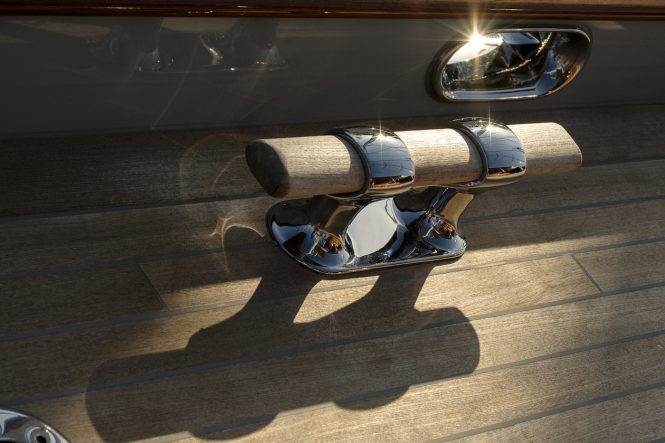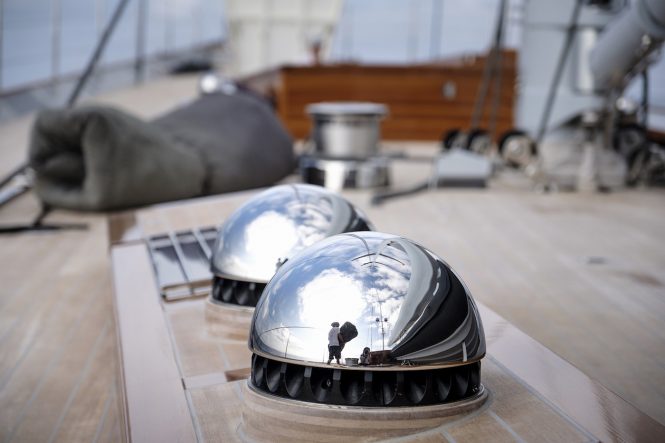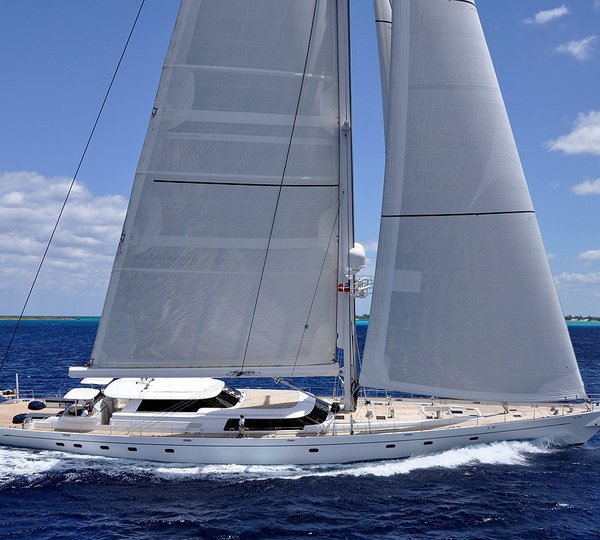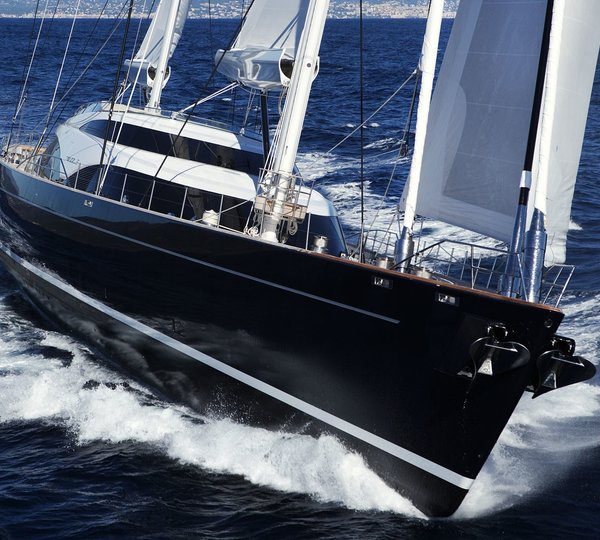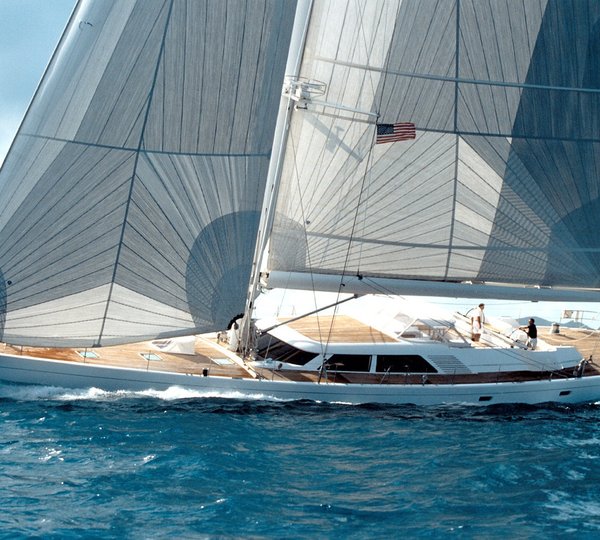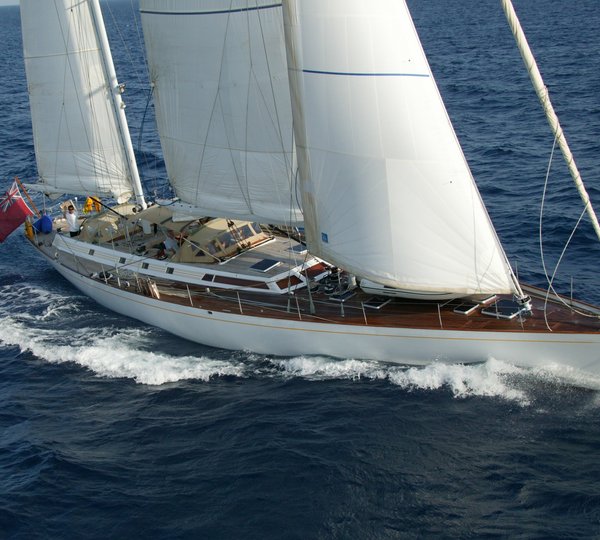Cursory visitors often miss the subtle design elements that make an exterior design so successful, and there are myriad intricate details to discover aboard 56m/184ft luxury ketch AQUARIUS which was launched this year by Royal Huisman.
(Part 2/3 – read part 1)
Designed for experienced Owners who knew exactly what they wanted from a sailing yacht, AQUARIUS is the model blend of classic design and contemporary techniques, materials and technology ensuring the survival of the live-aboard sailing tradition into the 21st Century.
The exterior represents a collaboration between numerous highly regarded designers and companies supplying the sailing yacht industry, including the Owners’ Project Manager Godfrey Cray, Doyle Sails NZ, Carbo-Link, Rondal and Dykstra Naval Architects, who worked on other prestigious projects MALTESE FALCON (2006) BLACK PEARL (2016) and RH400, Royal Huisman’s latest flagship sailing yacht, due for launch in 2019.
The Brief
The Owners called for ‘an elegant, muscular sailing yacht with a classic profile for family enjoyment’ and Project Manager Godfrey Cray was on-hand throughout the design process to ensure that this statement was kept at the forefront of the design. As a ‘modern classic’, S/Y AQUARIUS needed to be elegant and uncluttered, and when an item on deck could be simplified or removed entirely, it resulted in a cleaner appearance where complex engineering belied operational simplicity.
“The Owners, who are very good at visualisation, immediately understood that you can’t hide anything behind a foot rail,” says Erik Wassen of Dykstra Naval Architects. “So we’d better keep it clean! And we did.”
The Profile
The carbon composite hull has received a beautiful charcoal grey paint job finished with a gloss coating that makes the pale teak decks stand out all the more once visitors have stepped aboard. Oval portlights retain a classic appearance, as does the silver cove stripe that ends with a flourish to the aft. Above head, the towering masts feature two Rondal-manufactured carbon fibre Panamax spars as well as furling booms. For exceptional performance during regattas as well as normal cruising conditions, S/Y AQUARIUS comes with a flexible sail inventory designed to work optimally with a full crew.
Working in tandem with the ketch rig is a streamlined underwater profile, designed with a fixed keel at 4.8m/15.7ft and balanced spade rudder. On both sides of the raked bow, there is a stainless steel anchor in classic style.
To minimise deck clutter, the inner forestay is removable and extra precautions in the design were taken to avoid snagging on classic deck features, such as the cowl vents which are shaped to prevent lines becoming entangled.
The Layout
Two low-profile teak-clad deckhouses are situated forward with a sheltered crew companionway for efficient and discreet service.
The mid-deck section has been left clear to be converted to the occasion: A canvas shade will provide protection from the sun and reduce sea spray while guests use the space for alfresco exercise or fitted with sun beds for outdoor rest and recreation.
Aft of the glass-surrounded main deckhouse is the C-shaped forward-facing main cockpit, perfectly suited to alfresco dining, lounging and use as sun beds along the outer sides. The tables can be lowered to become coffee tables or changed to offer atmospheric evening dining for 10 or an intimate breakfast area for two.
A large bimini covers the living space and two additional biminis attach and extend over both helm stations. Padded leaning posts are also evident in this area for efficient steering and crew comfort throughout the journey.
The mizzenmast aft of the helm stations is surrounded by glass panels that light the Master suite below, with each section individually operated by an electronic blind to control the light. The final deckhouse is a private retreat for the Owners, who also have access to a shaded cockpit for quiet drinks and meals directly from the suite below. To the stern are two sun loungers and an array of sunpads, while a starboard gangplank provides safe and easy access to the shore.
The Detailing
The accessories and finishes all contribute to the ease and comfort of life on board, and some of the subtle yet noteworthy design choices include:
- Recessed furlers on deck are partially visible. The pulpit has been discarded to achieve a low tacking point to optimise rig balance and sail area.
- The stanchions can be removed for a completely flush deck, and when installed they are set inboard of the continuous cap rail where there is a hidden foot light.
- The guardrail integrates a tensioning device to remove the need for bottle screws. With the mechanism hidden away, the wire has a clear, uninterrupted appearance right the way around the sides.
- Stainless steel panels join teak for an unabashedly modern helm station, with polished steel spokes offering an acknowledgement to tradition.
- The modern helm display systems are concealed beneath teak panels for easy readability in sunny conditions as well as protection and a seamless appearance when not in use.
Information has been provided courtesy of Royal Huisman and the Owners of S/Y AQUARIUS, and more details on her beautiful modern interiors from Mark Whiteley Design will be featured in a final article on the CharterWorld website, so do follow our news section here or through our social media…

